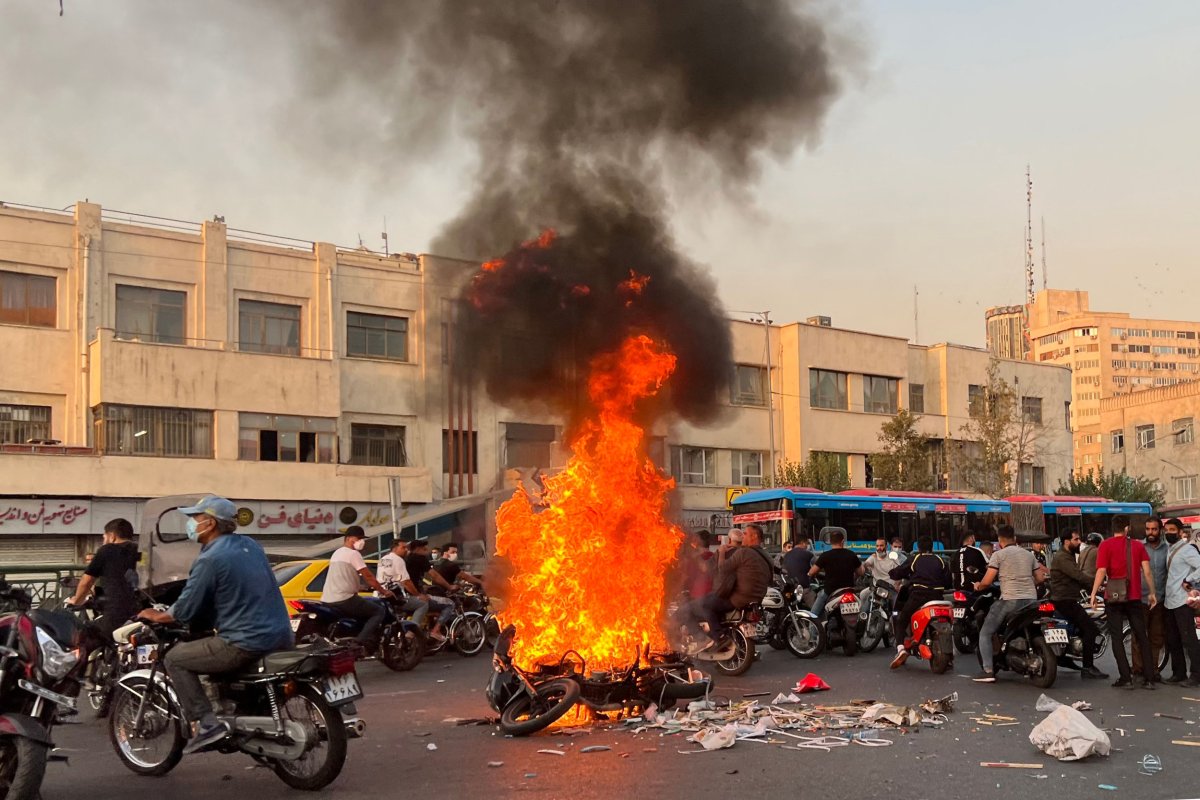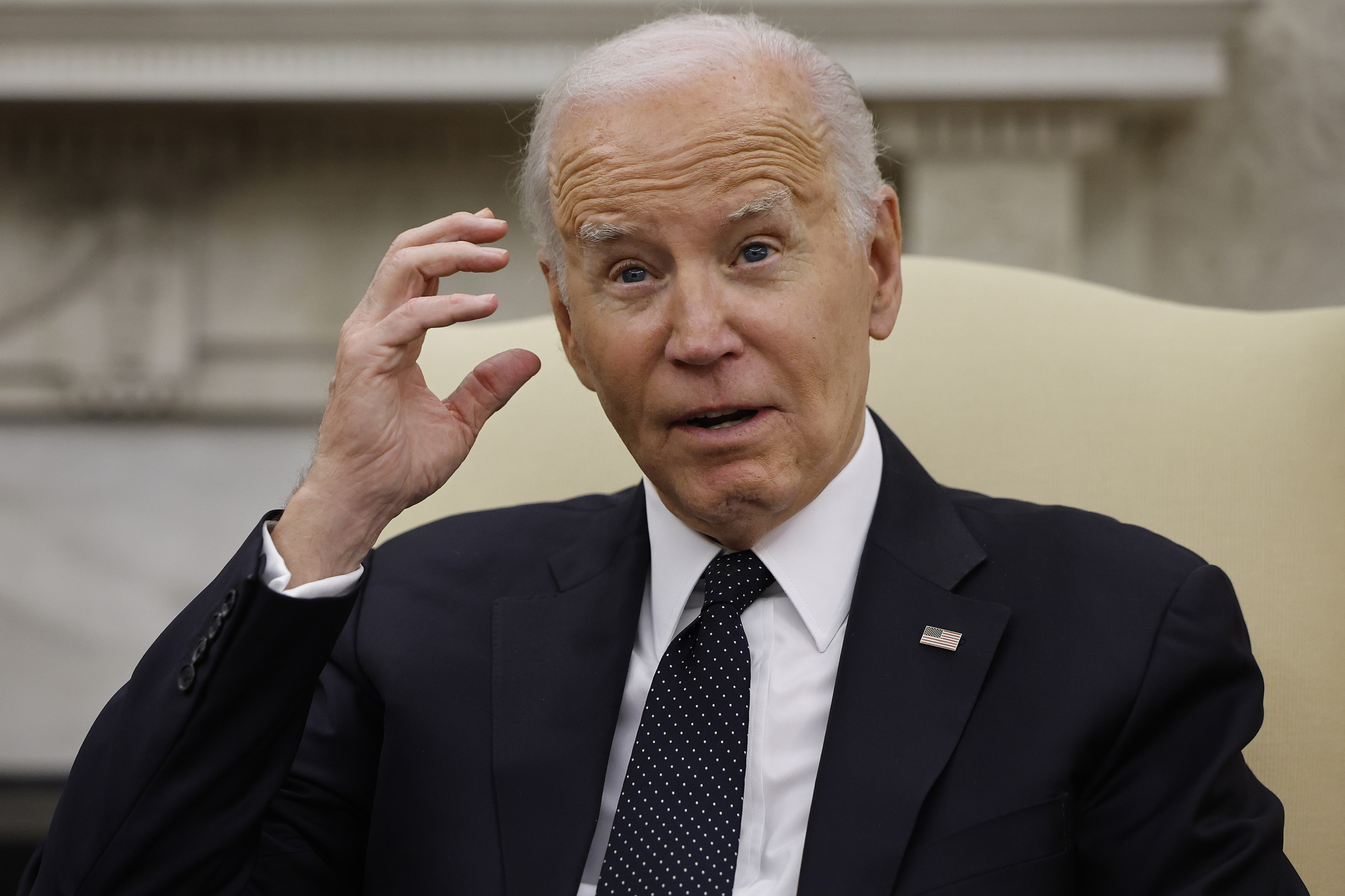Protests that began following the death of Mahsa Amini have reached Iran's critical oil and petrochemical sectors this week, online videos appeared to show. The protests could potentially have serious ramifications for Iran's oil output and the global supply chain.
Amini, a 22-year-old Kurdish woman, was arrested by Iran's morality police on September 13 for allegedly wearing "unsuitable attire." She died on September 16 in a Tehran hospital after spending three days in a coma.

Iranian authorities said Amini died of a heart attack, but her family disputes this, saying her body showed bruises and other signs of beating. United Nations experts have referred to reports that say she died as a result of torture and ill-treatment by the authorities.
Since then, the Islamic Republic and other countries around the globe have been rocked by protests, demanding guarantees over women's rights and regime change.
On Monday, workers at Iran's oil and natural gas refineries were seen in social-media videos protesting in the cities of Abadan and Asaluyeh. Those industries are crucial to the sanctioned Iranian regime— for example, Iran's oil production was reported at 2,572 barrels a day in August, and it is one of the biggest crude producers in the world.
Videos on social media showed dozens of workers demonstrating at refineries in Asaluyeh, some 579 miles south of Tehran. One video showed protesters shouting "death to the dictator" and "shameless," the Associated Press reported.
On Sunday, Iran's hard-line chief justice, Gholam-Hossein Mohseni-Eje'i, tried to appease the protesters calling for dialogue with the people.
"I'm ready. Let's talk. If we've made mistakes, we can amend them," he said, though many Iranians were skeptical.
Jason Brodsky, policy director at the United Against Nuclear Iran non-profit, said it was unclear if the protests at this stage will have any impact on Iran's oil production.
"More broadly, given the U.S. sanctions that are still on Iran's energy sector, the downstream effects would be more contained than it would be otherwise," he told Newsweek.
"Nevertheless, the convergence of labor and political protests would represent a significant threat to the Islamic Republic if these strikes continue, deepen and expand across sectors."
Brodsky said that oil strikes played a critical role in the 1979 Islamic Revolution, which saw the overthrow of Shah Mohammad Reza Pahlavi, who fled the country into exile. The current Islamic regime, first led by Ayatollah Khomeini, who died in 1989, came into power after the revolution.
"So the Iranian clerical leadership is likely eyeing this [the oil strikes] warily, and that's why we are seeing comments from some of the most repressive figures in the Iranian establishment, like the chief justice, trying to appease protesters," Brodsky said. "But these protesters have telegraphed they are done with reform. They want regime change."
Reid L'Anson, an economist at Kpler, believes the effects of the protests will likely be minimal on global energy markets.
"Iran is already under sanction meaning they are exporting oil well under potential levels," he told Newsweek. "Now, you could see some changes in Chinese purchases given they lift a lot of Iranian crude, but again my sense is that effects globally will be limited."
"Obviously the average American is chiefly concerned with domestic gasoline prices, which are slowly ticking higher after bottoming in mid-Sept. Higher oil prices and logistical constraints (i.e., Jones Act restrictions limiting the flow of US Gulf Coast shipments into the East Coast) both play a role," he said.
On Monday, gunshots and explosions were heard in Sanandaj, a Kurdish city and capital of Kordestan province in northwestern Iran, as the protests over the death of Amini continued to unfold across the country.
The U.K. and the U.S. have sanctioned the morality police, as well as other Iranian officials, after the killing of Amini and the security service's brutal crackdown on protesters.
Update 10/11/22 9:27 a.m. ET: This story has been updated with comments from Reid L'Anson.
Uncommon Knowledge
Newsweek is committed to challenging conventional wisdom and finding connections in the search for common ground.
Newsweek is committed to challenging conventional wisdom and finding connections in the search for common ground.
About the writer
Jack Dutton is a Newsweek Reporter based in Cape Town, South Africa. His focus is reporting on global politics and ... Read more
To read how Newsweek uses AI as a newsroom tool, Click here.






